As a membership association, ICLEI receives its mandate from its Member local governments and municipal organisations. Not only in terms of project implementation, but also in terms of governing the organisation, ICLEI works closely with its members. On a regional level ICLEI Europe does this through the European Regional Executive Committee (REXCom), who are representing ICLEI’s Members in Europe. On a global level, ICLEI works with its Global Executive Committee (GEXCom) and the Council.
Meet the members of the global ICLEI Council.
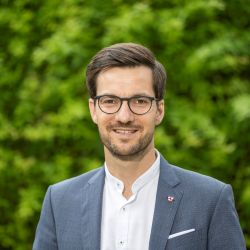 Martin Horn holds a Bachelor's degree in International social work and a Master’s degree in European and World Politics. Before being elected Lord Mayor of Freiburg in 2018, Horn worked as European and Development Coordinator for the City of Sindelfingen (Germany) and as a freelance lecturer at the Ludwigsburg Protestant University of Applied Science.
Martin Horn holds a Bachelor's degree in International social work and a Master’s degree in European and World Politics. Before being elected Lord Mayor of Freiburg in 2018, Horn worked as European and Development Coordinator for the City of Sindelfingen (Germany) and as a freelance lecturer at the Ludwigsburg Protestant University of Applied Science.
Horn takes an integrated policy approach to climate protection, implementing ambitious climate measures to safeguard the well-being of its future generations. To achieve this, the City has established local targets and developed urban solutions accordingly.
As Lord Mayor, Horn considers international collaboration through ICLEI key. Freiburg´s work on putting the SDGs into practice on a local level is a good example of how sustainable development is a cross-sectional theme, touching all areas of living and all tasks of a local authority.
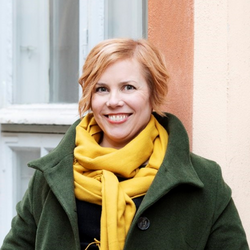 Piia Elo holds a master’s degree in political science. After holding the position of Deputy Mayor from 2021 to 2025, she became the Mayor of Turku in June 2025.
Piia Elo holds a master’s degree in political science. After holding the position of Deputy Mayor from 2021 to 2025, she became the Mayor of Turku in June 2025.
She has been a member of the Turku City Council since 2008 and is also Chair of the Party Council and a member of the Executive Board of the Social Democratic Party of Finland. Her professional background includes ten years as Head of Service at Turku Vocational Institute, alongside positions in the Finnish Parliament, various associations, and the International Services at the University of Turku.
Her political priorities center on children, education, employment, families, the welfare society, the environment, and climate action. As Deputy Mayor, she successfully led a major cross-sectoral reform of education, children, and youth services in Turku. She is committed to advancing ambitious sustainability solutions with ICLEI for Turku and beyond.
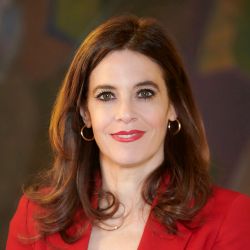 Maider Etxebarria Garcia has a degree in Tourism Business and Activities and a degree in German Philology and obtained the “Diplôme Supérieur d’Études Françaises Modernes” from the Alliance Française. She has served as Mayor of Vitoria-Gasteiz since June 2023.
Maider Etxebarria Garcia has a degree in Tourism Business and Activities and a degree in German Philology and obtained the “Diplôme Supérieur d’Études Françaises Modernes” from the Alliance Française. She has served as Mayor of Vitoria-Gasteiz since June 2023.
She has worked for a large part of her professional career in the private sector. She has also served as Director of Tourism of the Basque Government (2016-April 2019) before becoming First Deputy Mayor, Spokesperson of the Socialist Municipal Group and Delegate Councillor of the Department of Economic Promotion, Employment, Trade and Tourism of the City Council of Vitoria-Gasteiz in the 2019-2023 mandate.
Promoting the transition in Vitoria-Gasteiz towards a model of circular production and consumption has been a main objective of her political tenure. Additionally, she actively advances the city’s Agri-Food System and enhances Nature-Based Solutions for public spaces in Vitoria-Gasteiz. Etxebarria is keen to share her experience with the wider ICLEI network.

Lasse Frimand Jensen holds a Master’s degree in Development and International Relations. Prior to his appointment as Mayor in 2023, Jensen was Head of the International House in Aalborg. He has been a member of the City Council of Aalborg since 2014 and has also served as the chairman of the Danish Water Association, the Port of Aalborg and Aalborg Utilities Company. Jensen has been key in setting up Green Hub Denmark, a strong public-private partnership that uses green innovation, sustainable business models, and large-scale testing to address climate challenges.
Since being elected Mayor, Jensen serves as Chair of the Finance Committee, Chair of Aalborg Business Council and Chair of the Regional Council of Municipalities. Furthermore, he sits on the board of Destination North Denmark. Jensen has experience in engaging citizens in the green transition, and set up the Green Agent's project, which aims at promoting sustainability among residents of the city.
As host of the European Conference of Sustainable Cities and Towns on 1-3 October 2024, Jensen sees involvement in ICLEI key to understanding the bigger picture when working on local sustainability.

Luísa Salgueiro has a Bachelor's degree in law and a postgraduate degree in environmental law. She has served as Mayor of Matosinhos since 2017.
Before being elected Mayor, Salgueiro served as legal advisor to the Porto City Council and Councilor of the Matosinhos City Council. Concurrent to her position as Mayor, she is President of the Board of Directors of the National Association of Portuguese Municipalities. She previously was Member of Parliament in Portugal and Vice President of the Energy and Environmental Safety Commission of NATO.
Salgueiro has experience with engaging citizens in the green transition and set up Carbon Neutrality by 2030 and Biodiversity Strategy by 2030, which aim at promoting sustainability among city residents.
With her multilevel governance experience Salgueiro is keen to contribute to the wider ICLEI network.
Meet the members with a European mandate.
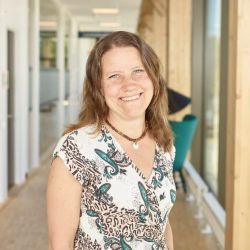
Pernilla Bodin has a Master’s degree in Environmental Science and has spent 15 years working in strategic environmental work in the public sector. She serves as chairman of the Municipal Executive Committee on Sustainability and is responsible for the implementation of the municipality's Sustainability Program according to Agenda 2030. Amongst others she is Vice Chairman of Växjö’s energy company and a board member of the local Green Party.
Bodin has developed policy plans in waste and environmental strategy, circular economy and Agenda 2030 and led processes to implement change management within the public organisations and in society, both locally and regionally.
In her work, Bodin has participated in several international development projects in Vietnam, Kosovo and South Africa, with a focus on Waste Management and Agenda 2030. She has a special interest and competence in circular economy, waste management, energy and chemicals. Bodin wants to contribute to a good quality of life for everyone without compromising the life of future generations.
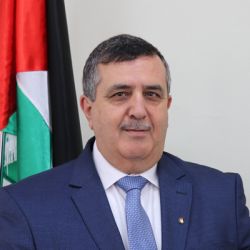
Adv. Anton Salman has been the Mayor of Bethlehem since January 2024, after having previously been in the position from 2017 to 2022 and having been a City Council member from 2005 to 2017. With a degree in Law and a background as a Civil Law lecturer, Salman integrates his legal expertise into his role as Mayor.
His international engagement is evident through active participation in committees such as the Permanent Conference of Historic Cities and the UNESCO Global Network of Learning Cities. Salman's global influence extends to conferences worldwide, addressing urban resilience and interreligious dialogue. He has experience spearheading projects in Bethlehem such as the "Reinventing Public Spaces Project" and the "Mobility Plan Project", which reflect his ability to translate sustainability principles into practical, impactful actions. He is keen to bring to ICLEI his experience facilitating partnerships in the Middle East region. His commitment to environmental stewardship, community engagement, and innovative urban planning underscore his wish to drive positive sustainable change.
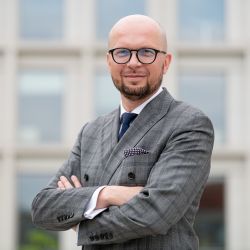 Jakub Mazur holds two Master’s degrees and an executive MBA and has over 20 years of corporate/ business experience. He has served as Deputy Mayor of Wrocław since 2018 and is responsible for supervising the Department of Strategy and City Development and representing the City in International Affairs.
Jakub Mazur holds two Master’s degrees and an executive MBA and has over 20 years of corporate/ business experience. He has served as Deputy Mayor of Wrocław since 2018 and is responsible for supervising the Department of Strategy and City Development and representing the City in International Affairs.
Under his portfolio as Deputy Mayor, Mazur is responsible for urban planning and land use plans, architecture, construction administration, city aesthetics, monument preservation, economic development, sustainable development, food and energy. He is also a member of several local steering committees and programme boards.
Mazur serves as President of METREX and his areas of expertise include strategy, branding, new business development, IPO, IT, e-commerce, and energy, which he is keen to bring to the ICLEI network.
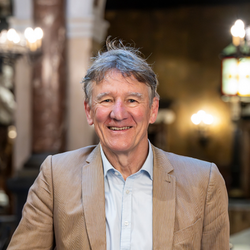
Patrick Janssens holds an MSc in Sociology and Applied Economics, in Statistics and more recently an MSc in Urbanism and Urban Planning. He is Alderman for Urbanism and Housing in Antwerp, a position he has held since January 2025.
He previously served as Mayor of Antwerp from 2003 to 2012, during which time he oversaw major urban renewal projects. Before entering politics, he worked extensively in the private sector, serving as Managing Director of Gallup Belgium and later as Managing Director and Chairman of BBDO Belgium. After retiring from politics in 2012, Janssens worked as a consultant for cities and companies on urbanism, communication strategy, and strategic planning.
2025 marks his comeback in politics, as he remains strongly committed to advancing sustainable and inclusive urban development in Antwerp and beyond with ICLEI.

Susanne Schilderman has a degree in Public Economics and Public Administration. Before being elected as Deputy Mayor of Utrecht in 2022, she was a member of the city council for almost seven years, advocating for better designed cycle paths, greener neighbourhoods and affordable housing. During her time on the city council, she worked on (social) housing policies, first as an advisor to the national government and later for the association of housing corporations.
As Deputy Mayor, Schilderman is responsible for Climate Adaptation, Circular Economy, Public Space, Finance and Economic Affairs. Her career has been shaped by improving welfare and implementing sustainable solutions for public policy. She is also a member of the standing committee on municipal finances of VNG, the Association of Netherlands Municipalities.
Schilderman works towards a just, ambitious and sustainable city, where there is room for everyone. Focus areas in her policies include expanding circular and sustainable initiatives so that they become the standard operating mode, applying to both government policy and business. Schilderman is ready to join forces and build a sustainable future that younger generations can live to see and enjoy as well.
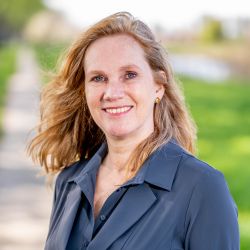
Harriët Tiemens studied Environmental Science and Public Administration and is at the head of the Dutch Green Metropolitan Region of Arnhem-Nijmegen. She puts her extensive experience in the fields of climate adaptation, circularity and biodiversity to use, developing the region as a prime national and international example in sustainable and green urban development. She is a member of the Dutch political party GroenLinks (GreenLeft) as well as the national taskforce for temporary (circular) housing.
Tiemens was Deputy Mayor for the City of Nijmegen from 2014 to 2021 and Deputy Mayor for the city of Rheden from 2007 to 2014. During that time, she chaired the physical pillar of the G40 network of Dutch cities and she chaired the VNG (Association of Dutch Municipalities) committee for housing, mobility and spatial development.
Over the years, Harriët Tiemens has built an excellent European track record, for example by heading the campaign for the City of Nijmegen to become European Green Capital 2018 and contributing to European and international conferences and meetings with the European Parliament and European Commission. Through ICLEI, Tiemens wishes to further leverage local commitment to sustainability by European and international strategies.
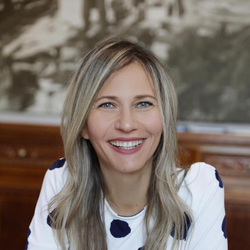
Anuela Ristani is the Deputy Mayor in charge of International Affairs and Sustainable Development and acting Mayor of Tirana.
After over a decade of experience in multinational corporations and international organizations as a Strategic Management and Communications expert, she joined the city in 2015 and was appointed Deputy after the 2019 elections. She has overseen the Green City Action Plan, the Tirana Child Friendly agenda and the Resilience and Sustainability strategies.
Prior to joining the local government of Tirana, she established the National Youth Service where she also co-founded RYCO-Regional Youth Cooperation Office with the participation of the six Western Balkan countries.
Anuela Ristani is committed to advancing sustainable urban development and citizen engagement in Tirana, while actively sharing her city’s experience within ICLEI's international network.
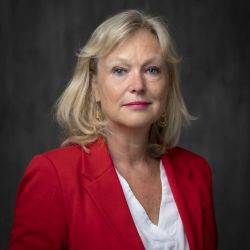
Since June 2022, Chantal Zeegers has been working as Vice Mayor in the Municipality of Rotterdam. She is responsible for the Climate, Building and Housing portfolios.
Previously, Zeegers has held a variety of different positions within the Ministry of Education and the Municipality of Rotterdam. She has been active in politics for the D66 party since 2011. She started out as an Executive Director of the Hillegersberg-Schiebroek sub-municipality, specifically focussing on outdoor spaces, sustainability, and traffic and transport. She was the D66 Party Chairperson in Rotterdam’s municipal council between 2018 and 2022. She is also vice-president of the regional environmental protection agency DCMR.
Zeegers believes that urgent action is needed to make the transition to a more sustainable, resilient and socially just society. To meet the challenges brought by climate change, she believes that international cooperation and legislation are required to make the necessary next steps.
Our global governance structure is based on nine Regional Executive Committees (REXComs), each elected by the ICLEI Members of the specific region. All REXComs together form the ICLEI Council, which represents ICLEI’s global Membership by way of representative democracy. From within each REXCom one representative is nominated to the ICLEI Global Executive Committee (GEXCom), which is the overall governing body representing the entire ICLEI Membership and oversees the implementation of the Strategic Plan. To see how our governance structure works, watch this video:
This document is the first Gender Equality Plan (GEP) co-developed in a participatory process for ICLEI Europe by its staff representatives. Building on the monitoring, evaluation and learning from the gender work at ICLEI Europe, this GEP will be updated as needed to include new developments, actions and knowledge.
This document supports an ongoing process - supported by the management of the company - for improving gender equality through evidence-based planning and gender-sensitive action. The drafting of this document is a key action of the gender group work, included in ICLEI’s Gender Action Plan (GAP), initially developed in 2023 and then periodically updated, as a milestone and guidance including concrete actions to translate into action the GEP.
More specifically, actions are articulated in 4 streams of work (the gender pillars), namely: Organisational Actions, Communication, Training and capacity-building, and Monitoring and Evaluation.